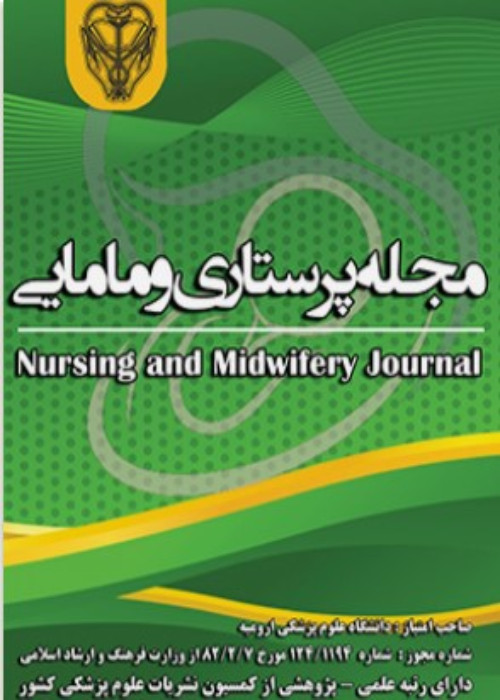LETTER TO EDITOR: CHALLENGES OF NURSING FACULTY MEMBERS’ PROFESSIONAL LIFE DURING THE DOCTORAL COMMITMENT PERIOD
Dear Editor,
Faculty members are regarded as the most important assets of higher education institutions, and assessing their issues is very important (1). These individuals play an essential role in improving students’ teaching, learning, and progress in various fields and lead to improving educational, professional, and research outputs (2).
Studies have indicated numerous tensions and challenges in the professors’ lives and their work quality. On the one hand, achieving an academic position is a complex experience for newcomer faculty members and is considered ideal. In addition, this professional experience is often laden with feeling overwhelmed and unprepared for some responsibilities and organizational dynamics, dealing with conflicts concerning expectations and cultures. In such a situation, it is indeed difficult to maintain personal balance and self-care (3).
The first days of professional experience are horrific and associated with mental pressures. The individual must conform to the new occupational procedure, environment, and co-workers. As newcomers in a professional environment, individuals do not know what to ask from whom. Therefore, they may take a long time to learn the simplest things (4). As a newcomer faculty member, an individual is conforming to the new situation. Studies present an image of professors' challenges when starting their new occupations. Adapting to academic life is often stressful. Professors have common worries, such as combating the shortage of time to do all affairs, uncertainty about the exact expectations others have from them, and challenges to achieve a balance between professional and personal responsibilities (5). The new member requires an understanding of the organization’s mission, goals, philosophy, structure, culture, value, employees’ activities, service standards, health and safety rules along with methods, timetables, and expectations so that the new member’s increased sense of loyalty and belonging to the organization is finally achieved (4). The first five years of the faculty member’s professional activities are usually the phase of status transformation and professional status stabilization, which is one of the most significant stages of the academic faculty members of universities across the country in their professional lives (6) because the new member has performed no activity concerning the new profession and has gained no experience in this regard until the familiarization stage; therefore, the training content and method will be extraordinarily influential in establishing the required individual activities and skills (4).
A study on American academics demonstrated that newcomer faculty members experience considerable stress regarding issues in their new life, such as stress, time, socialization, and evaluation, and also experience a high level of stress in conforming to such an experience. Many of these individuals report that they spend much time preparing for their classes, but still, they often do not feel prepared, leaving little time to consider the expected research programs (5). After completing the doctoral course, the ideal condition in nursing is the path toward achieving a faculty member position and starting an academic life. However, despite its high social prestige, this path is associated with many challenges and ups and downs, including struggling with problems such as not being familiar with the rules and job description, not being familiar with individuals at different levels in the organization and the organizational chart, providing theoretical lessons at the onset of entering the activity field, having clinical credits, the time-consuming preparation for teaching theoretical credits, assignment of numerous course credits (16/8 credits), low ratio of course credits to the amount of course materials, challenges of dividing and allocating credits, the lack of enough time for research activities, being confused to perform scientific promotion activities, assigning secondary tasks for education, such as consulting professor, continuous training, attending various councils and meetings without having a history of attending such meetings, being compared and evaluated by students and colleagues, the professional environment’s discriminations, and non-acceptance of new members and their working methods by students and some colleagues. Making efforts to satisfy the expectations of the organization, colleagues, and students, in addition to the conflict of personal life with the professional environment, imposes extreme fatigue and mental stress on the individual. All these cases would be true if the newcomer faculty member received no training in this regard, and most of the cases should go ahead by trial and error. These cases can influence faculty members’ capabilities and, finally, the educational quality.
The author considers it necessary to note a quote here, “…The generation has changed; the students’ expectations have heightened; the organization has expectations too. Well, we are busy all weekdays; we have internships in the mornings, classes and meetings in the evenings, etc. In addition, we have our life problems, too; we have no time to rest. It is challenging at first; it takes time to get into stride. We miss a lot of our work; we have no time to conduct our research; we do not really have time....”
Given the stressful conditions in the first years of professors’ professional activities and the stabilization of their professional position, which is regarded as the basic course, strategies are expected to be considered for entering the university arena. Therefore, it is suggested that they spend a short time on a training course before entering the doctoral commitment course and considering their sudden entrance to the educational field after graduation. Given their capabilities, the course credits need to be gradually increased to reach the quorum. Another strategy is allocating one full day per week to research activities to satisfy the organization’s research expectations. We hope that by considering these cases, we can take an effective step toward promoting the motivation of newcomer faculty members and greatly help improve these conditions
- حق عضویت دریافتی صرف حمایت از نشریات عضو و نگهداری، تکمیل و توسعه مگیران میشود.
- پرداخت حق اشتراک و دانلود مقالات اجازه بازنشر آن در سایر رسانههای چاپی و دیجیتال را به کاربر نمیدهد.


